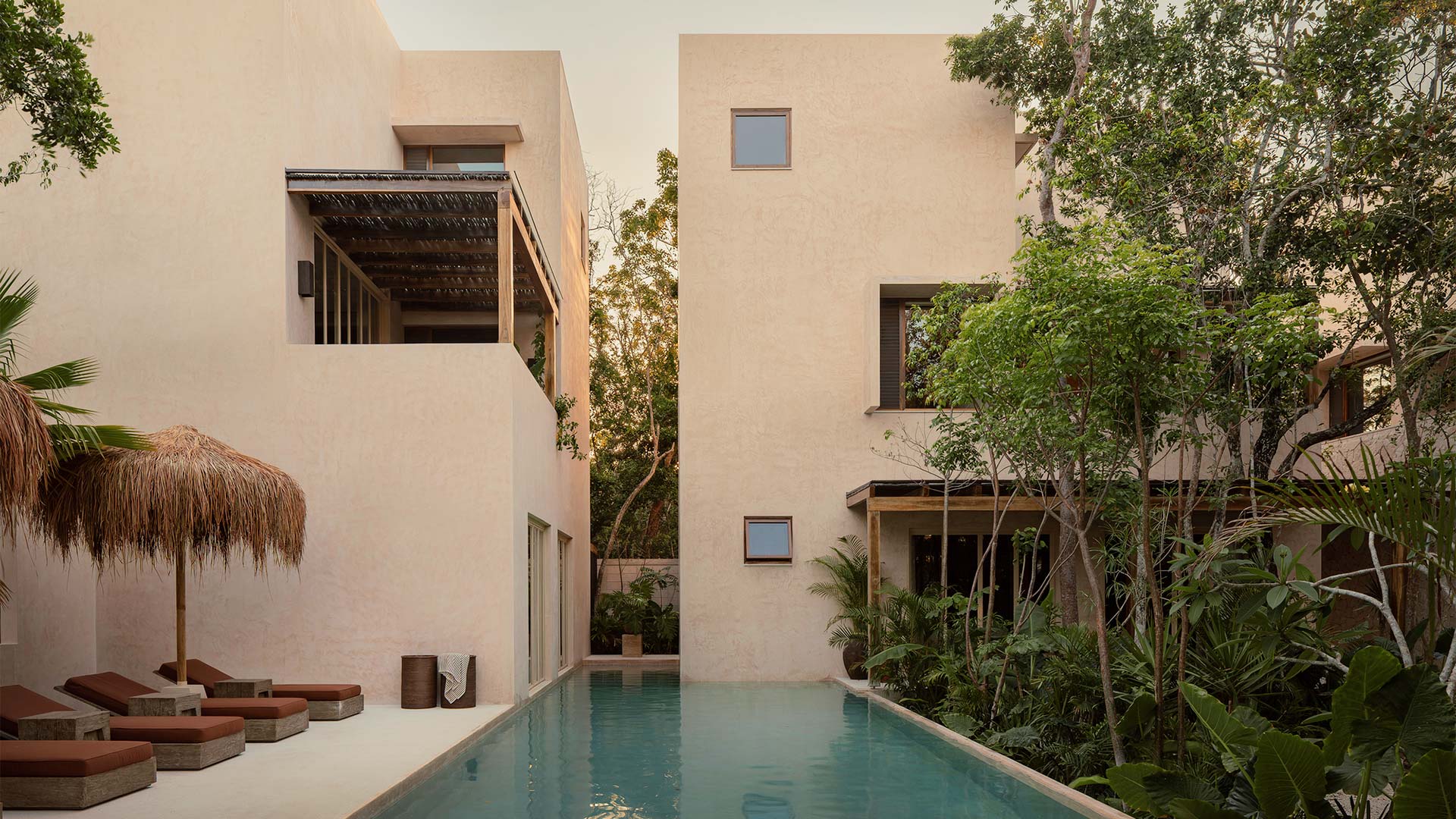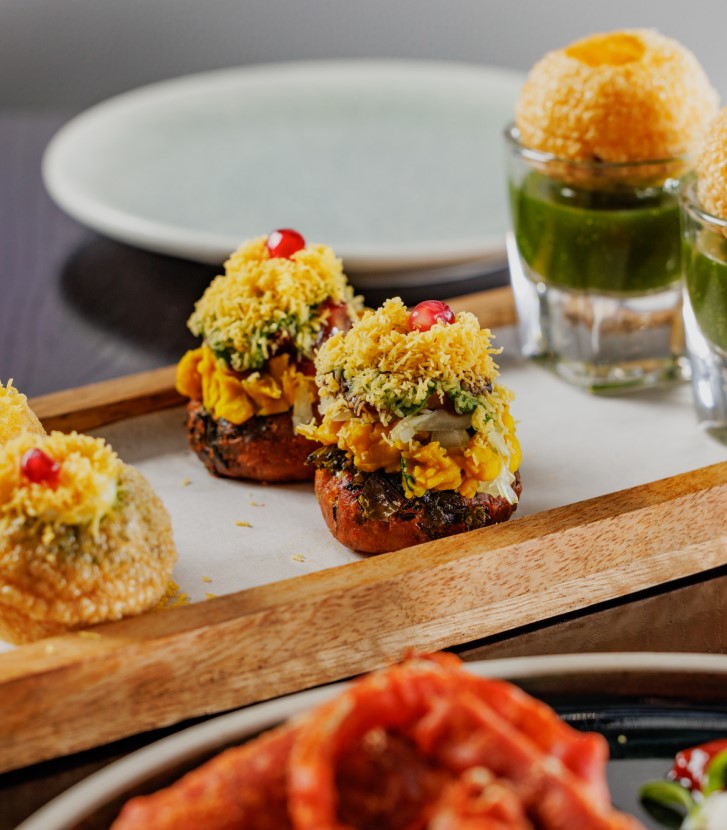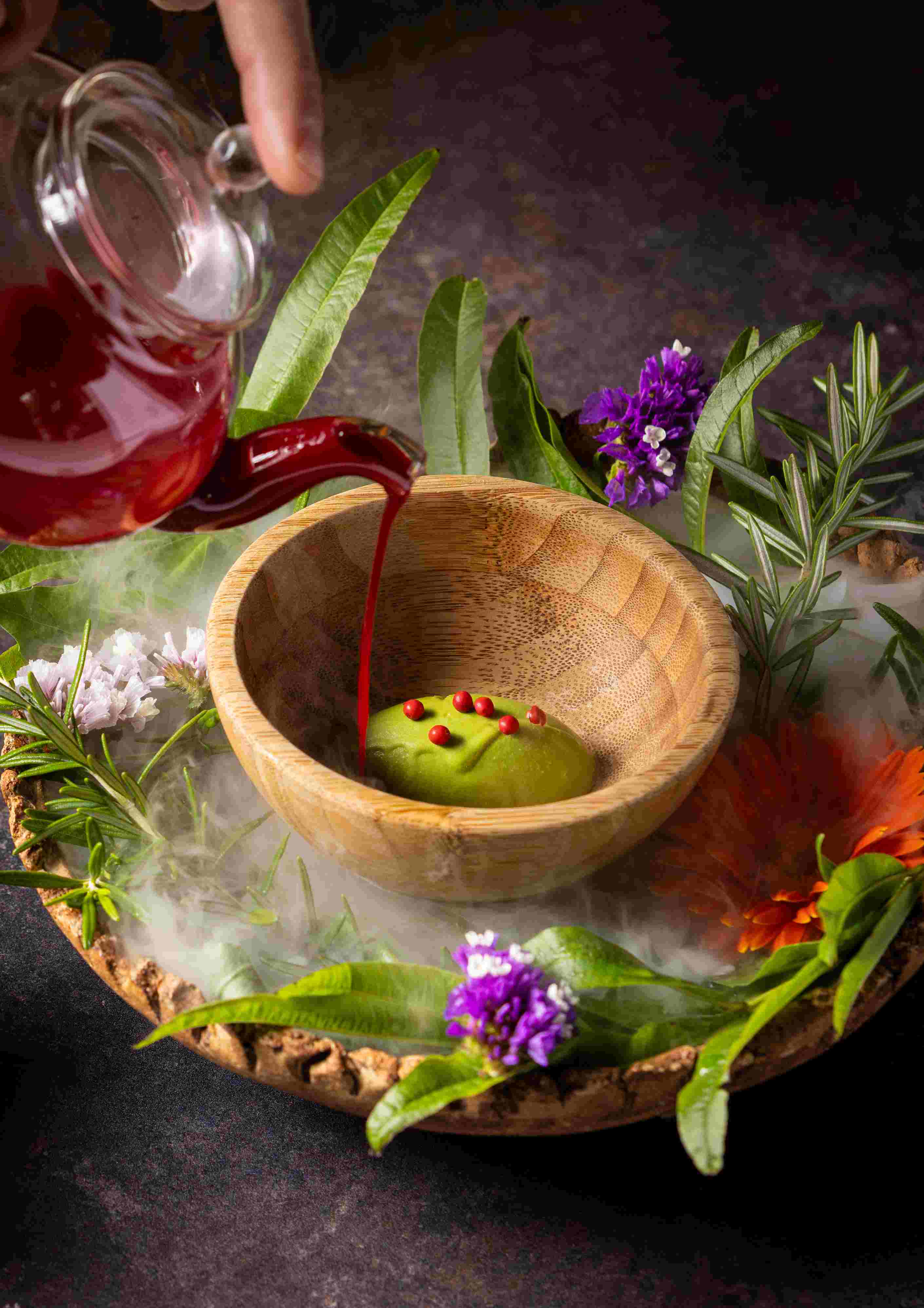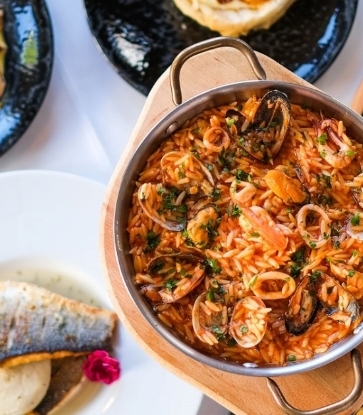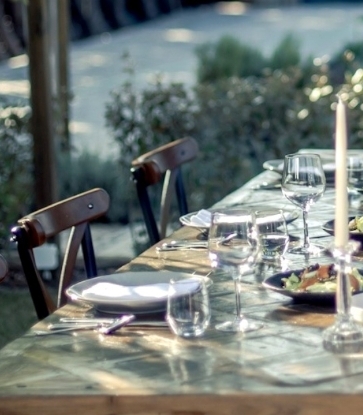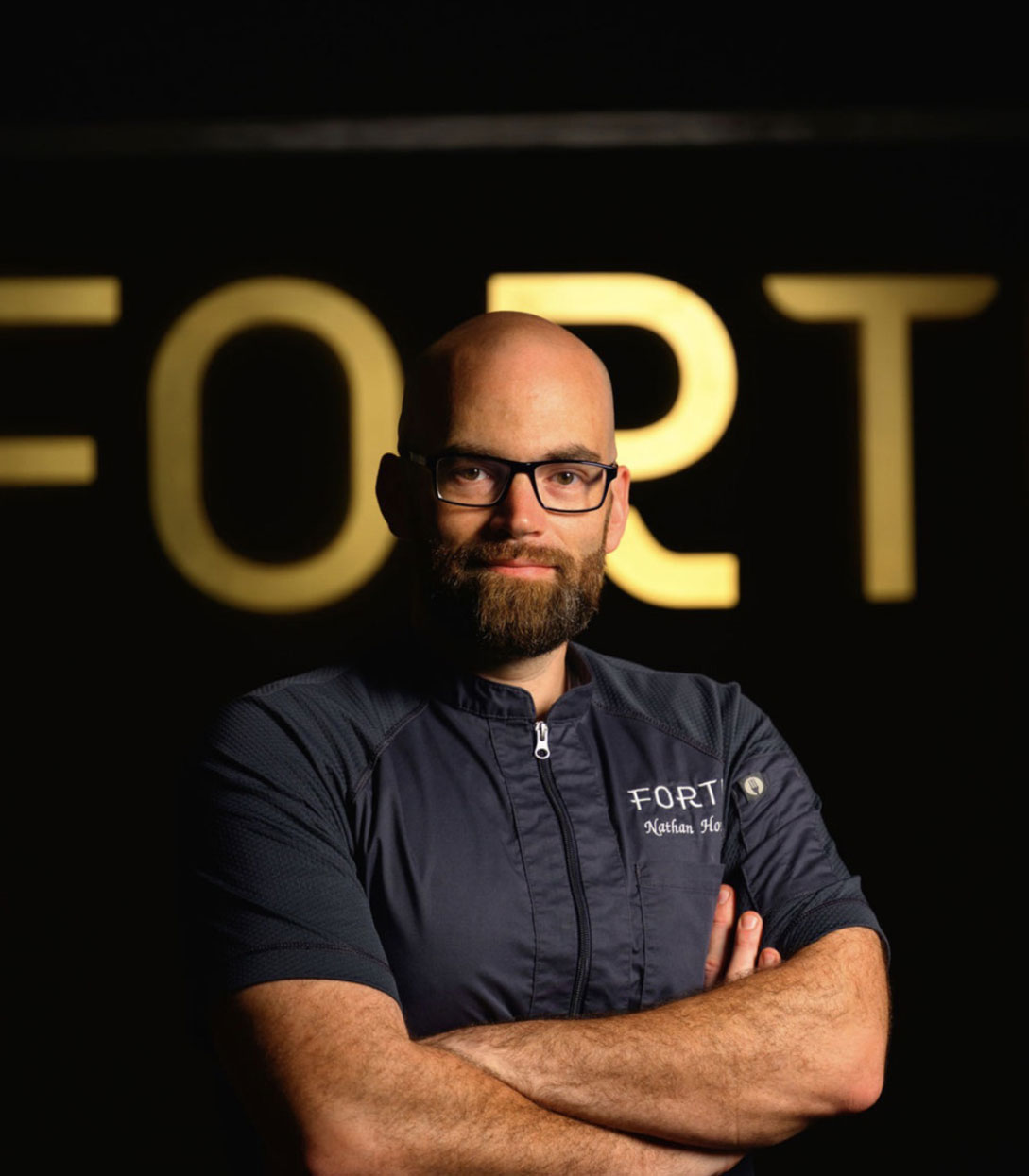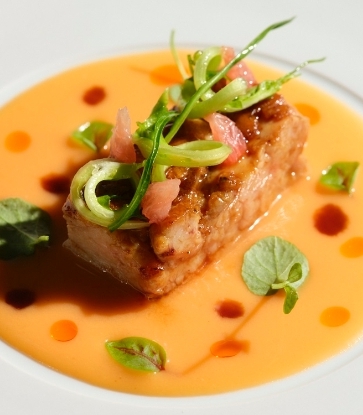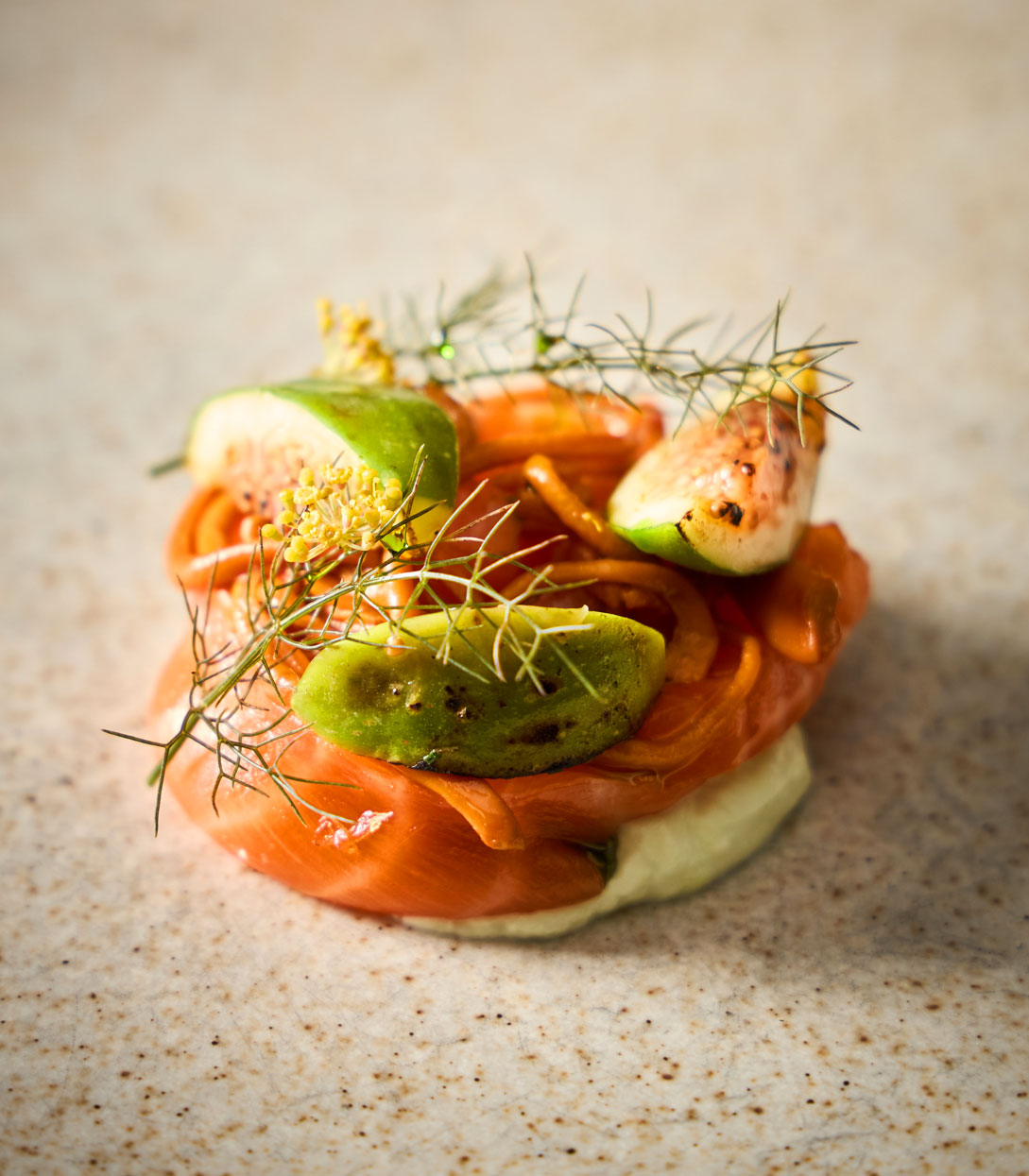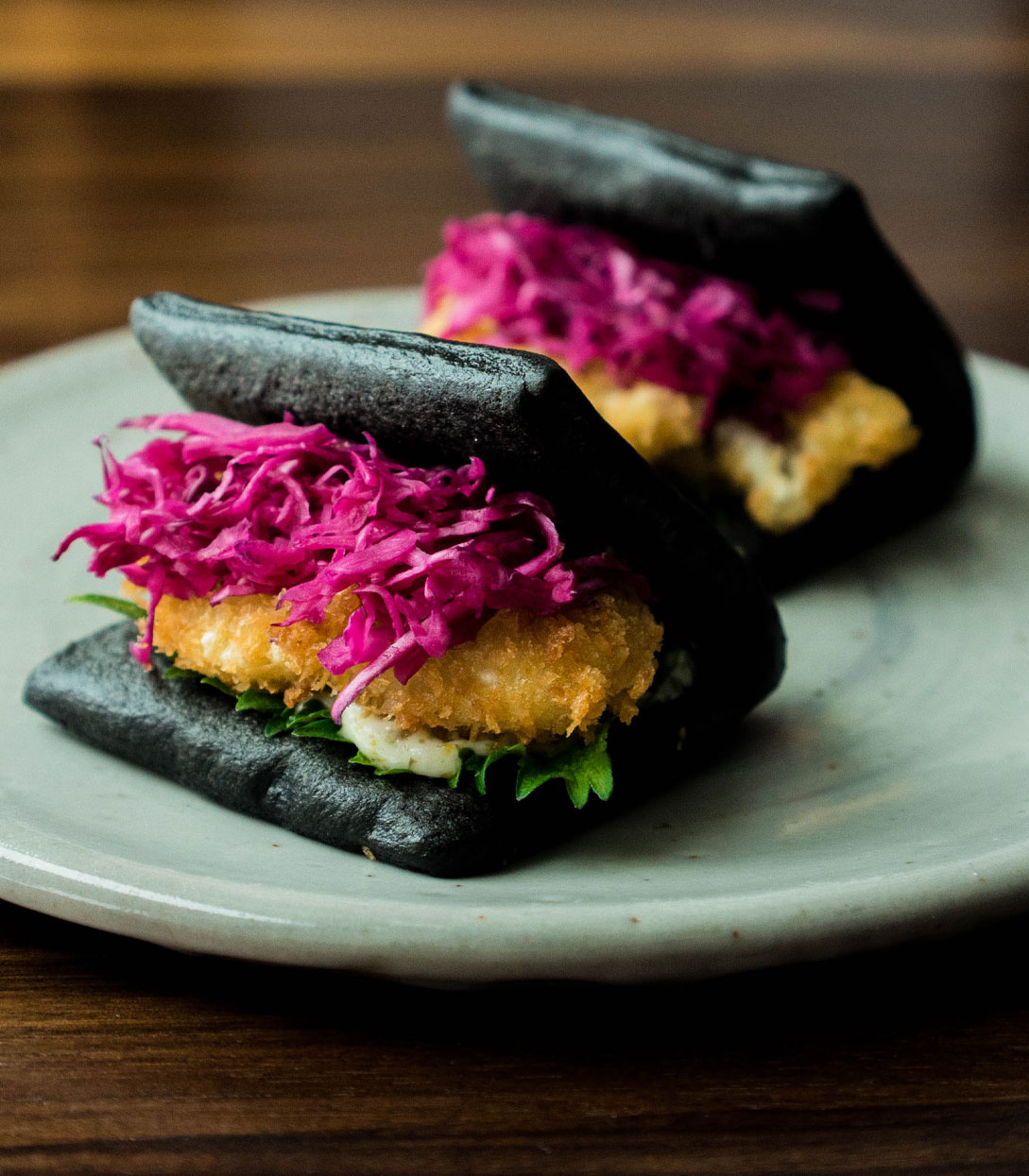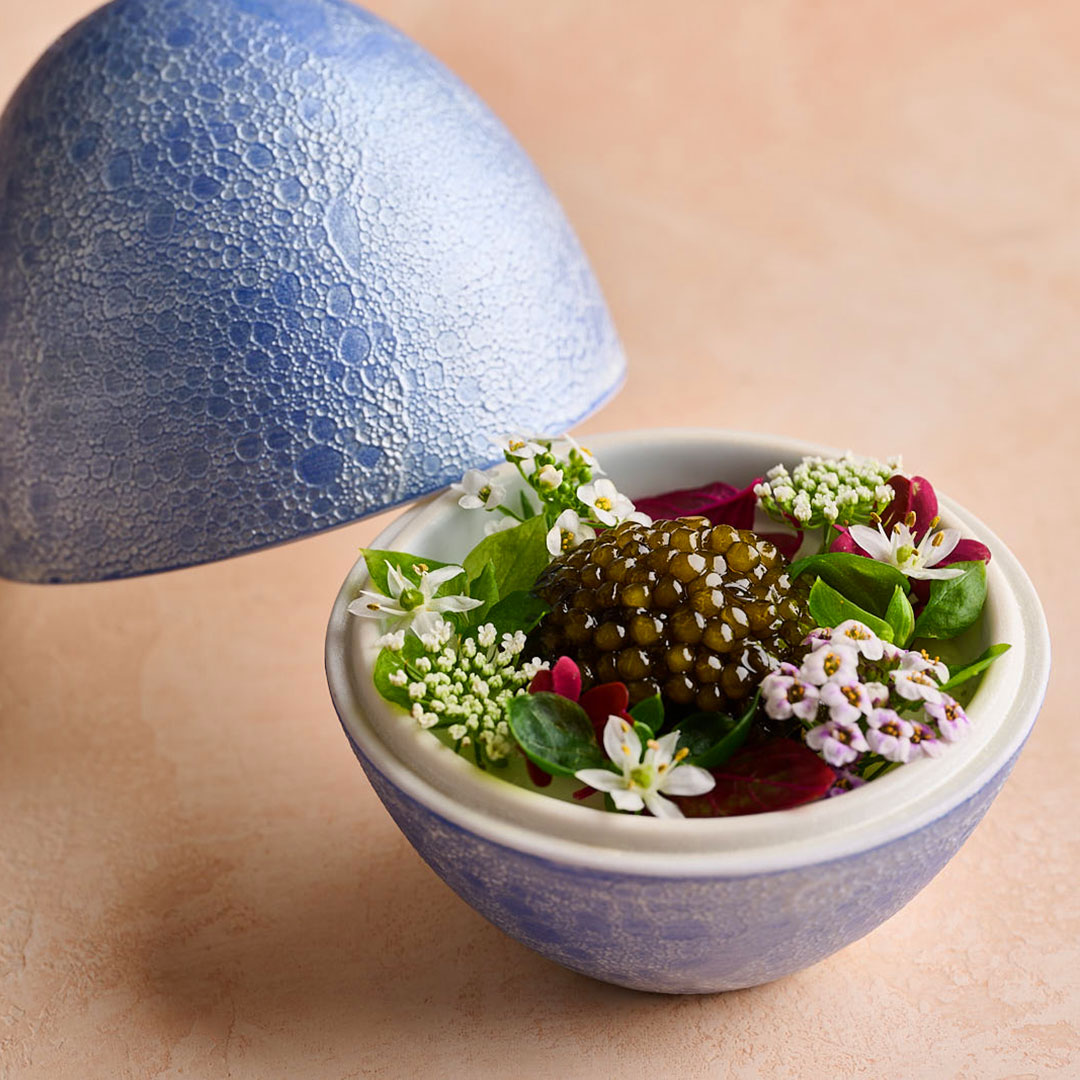When you sit down at Providence, Los Angeles’s two-MICHELIN-starred seafood restaurant, you might notice a few familiar fish missing from the menu. There’s a good reason you won’t see bluefin tuna or red snapper or striped bass. Instead, chef and co-owner Michael Cimarusti favors more sustainable, local species, like black cod, vermilion rockfish or spot prawn.
In the 30 years he’s been cooking, Cimarusti has seen major changes in the market. “Species that were available to us all the time are less and less available,” he says. “Unless you just completely bury your head in the sand, it's really hard to miss the signs that overfishing and climate change are showing us.”
As a lifelong fisherman, sustainability has always been a priority for Cimarusti. “It comes down to the simple fact that the way we behave now and the way that we treat the resources that we need has a very direct impact on what’s going to be available to the generations that come after us,” he says. “It just seems natural that I should be concerned—or that we should all be concerned—with the sustainability of the seafood that we choose to serve in our restaurant."

That doesn’t mean lecturing guests on the plight of the oceans. “By trying to make the right choices and talking about why we cook what we cook, I think that's as powerful a message as wagging your finger at people and telling them, ‘you shouldn't eat this and you shouldn't eat that,’” he says.
The menu features seafood harvested almost exclusively from the West Coast. The local catch consists of wild groundfish like black cod, wild finfish like king salmon and wild shellfish like spiny lobster. “Most all of the fish that are harvested here in California are sustainable,” Cimarusti explains. He also serves oysters, mussels and clams that are farm-raised in the region. “Shellfish are beneficial to the environment that they're raised in, whether they're wild- or farm-raised,” he adds.
When sourcing these products, Cimarusti aims to simplify his supply chain, working with the fishermen or a direct purveyor. “Everything is traceable,” he says. “We get a listing every week of where the fish are being harvested, the name of the captain and the name of the vessel that the fish were caught from.”
Diners learn this information when a dish is presented. “The same way that a server might come to your table and tell you that the black cod is grilled and served with an artichoke purée and a reduction of the cooking juices, they're also going to tell you that it was caught by Tony Vultaggio on his fishing vessel, the Rock Steady, out of Santa Barbara,” Cimarusti explains.
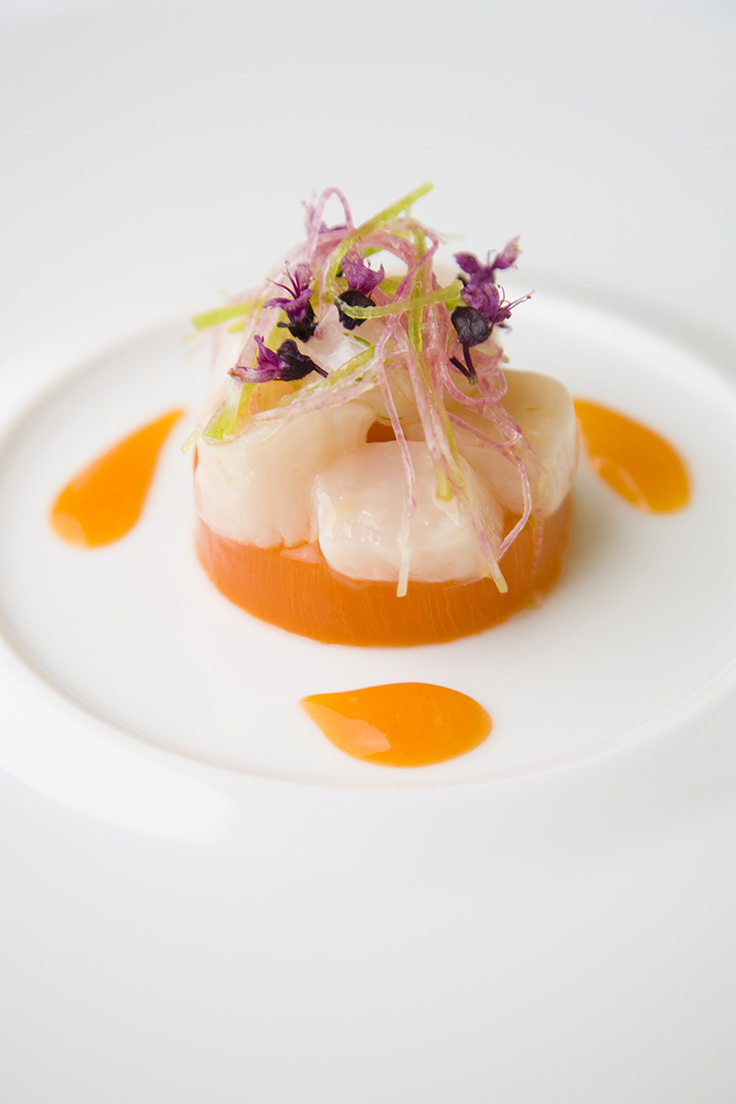
Local seafood served at its freshest represents the pinnacle of quality, but it doesn’t necessarily come at a premium. “I guess there's a perception that buying locally is more expensive,” he says. “I've found that's not really the case. Fish that has to travel further or from far-flung locations generally are going to be a little bit more expensive just because they spent time on an airplane getting to you. Local fish that were caught in Santa Barbara or Ventura or Oxnard, they aren't really traveling very far at all, and so all those costs are removed.”
It’s taken more than a decade for Cimarusti to get to this point with his seafood program. “Even up until just five years ago, fish that was harvested locally here in southern California wasn't very highly sought after or distributed here,” he recalls. “A lot of it got processed and a lot of it got sold into the larger market, but it wasn't really the type of thing where you would come to a restaurant like Providence and find local fish on the menu.”
More frequent exposure to these species helped to slowly change perceptions over time, to the point where both patrons and chefs appreciate locally-caught seafood. Cimarusti says the efforts of the restaurant supported fishery program, Dock to Dish, played a big role in that transition.
Now, the Providence team weaves their sustainability philosophy seamlessly into the dining experience. “It's all just part of what we do. The way we seek out the very best ingredients that we can and treat them with respect in our kitchen and they’re served to you with grace and kindness and warmth and hospitality—every bit of it goes to make up what the experience is,” he says. “Sustainability's just one part of that.”
Photos by Noe Montes.








